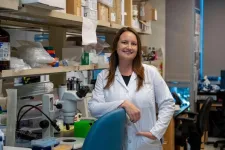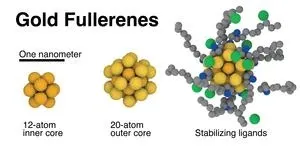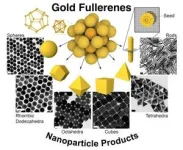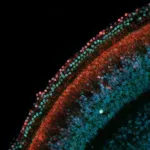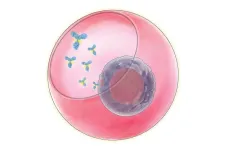Black men are more than twice as likely than other men to die from prostate cancer. In a continued search to develop inclusive diagnostic and predictive tests and personalized treatments, City of Hope researchers conducted a small clinical trial that identified four metabolism-related biomarkers linked to an increased risk of metastatic prostate cancer, or prostate cancer that has spread to other parts of the body, in men of West African heritage. City of Hope leads the nation in having the first research department focused on the intersection between cancer and diabetes.
“We have identified genetic and molecular changes that can be developed into a tool to predict which Black men are at the highest risk of developing metastatic prostate cancer,” said Sarah Shuck, Ph.D., principal investigator of the trial who will present the data at ACS. Shuck is an assistant professor in the Arthur Riggs Diabetes & Metabolism Institute and Department of Diabetes & Cancer Metabolism at City of Hope.
“This test would give doctors the ability to more accurately predict patients’ prognoses and equip scientists with more data as they work to design therapies that prevent prostate cancer from developing in the first place,” Shuck added.
The problem appears to be production of a highly reactive compound known as methylglyoxal (MG), a byproduct of metabolism that is elevated in people with diabetes. MG binds to DNA, RNA and protein, creating a complex that may promote cancer emergence due to its instability and disrupted function.
Prostate cancer is the second most common cancer in men. Black men are 70% more likely than white men to be diagnosed with prostate cancer and two to four times more likely than other racial and ethnic groups to die from the disease, according to 2023 data from the American Cancer Society.
Diabetes is a chronic metabolic disease characterized by elevated levels of blood glucose or sugar, which over time leads to serious damage to the heart, blood vessels, eyes, kidneys and nerves. Black adults are 60% more likely than white adults to be diagnosed with diabetes and twice as likely to die from diabetes, according to the most recent data available from the U.S. Department of Health and Human Services Office of Minority Health.
Shuck’s lab focuses on the study of how metabolic dysregulation causes diabetes and cancer. She and her colleagues investigate the biochemistry involved when excess sugar damages important molecules. To see if the identified dysregulated complexes were linked to race and genetics, the team conducted a small clinical study where they gathered blood samples from 371 men with and without prostate cancer from across the nation. To determine race, they assessed samples for genetic evidence of West African heritage using methods developed by collaborators Rick Kittles, Ph.D., M.S., and Leanne Woods-Burnham, Ph.D., who were at City of Hope when the research was conducted.
Next the researchers, including John Termini, Ph.D, professor in the Department of Cance Biology and Molecular Medicine at City of Hope, looked at four biomarkers associated with MG and the complexes it forms with DNA, RNA and protein. The biomarkers also included variation in a gene, GLO1, that encodes a protein which detoxifies these complexes.
Surprisingly, the men of West African descent had fewer of these malignancy-promoting complexes in their blood. Contrary to expectations, a lower level of these complexes was linked to greater risk of metastatic disease. The researchers hypothesize that, in men of West African descent, tumor cells sequester these complexes and spur metastatic processes from within. These findings did not apply to men of European descent. (In technical terms, they hypothesize that MG-AGEs, sRAGE, GLO1 and AGER SNPs may be used as biomarkers for prostate cancer in Black men and that the gene variation GLO1 may play a role in the accumulation of mutations that lead to prostate cancer cell growth.)
City of Hope researchers intend to gain a better understanding of prostate cancer disparities in the hopes of developing a diagnostic test.
A recorded media briefing on this topic will be posted Tuesday, Aug. 15, by 7 a.m. Pacific Time at acs.org/acsfall2023briefings.
# # #
The work was supported by City of Hope’s Health Equities Pilot Grant.
ABSTRACT
Reactive metabolic by-products induced by the exposome are associated with and may drive prostate cancer metastasis in African American men
Prostate cancer (PCa) is the second highest cause of cancer-related deaths in men. African American/Black (AA/B) men are disproportionally impacted by PCa with a 60% higher incidence of disease and a 2-fold increase in mortality risk compared to European American (EA) men. There is an urgent need to elucidate the underlying biological changes that give rise to this disparity to develop inclusive diagnostic and predictive tests and tailored therapeutic treatments. Environmental factors (the exposome) are proposed to contribute to this disparity and can influence disease risk through gene-environment interactions, in which genotypes may influence the response to environmental exposure. A significant contributor to PCa mortality is diabetes incidence, which varies due to the exposome. The mechanisms involved in increased PCa mortality in men with diabetes are not clear but are proposed to arise from physiological changes caused by diabetes-associated metabolic alterations. A proposed mechanism for how these changes increase PCa mortality is through the production of the reactive electrophile methylglyoxal (MG). MG is a by-product of lipid, protein, and sugar metabolism and forms covalent adducts on DNA, RNA, and protein. These adducts, termed MG-advanced glycation end products (MG-AGEs) lead to DNA mutations and genomic instability, change RNA stability and translation, and alter protein stability and function. In addition, MG-AGEs bind and activate the receptor for AGEs (RAGE). To regulate MG and MG-AGEs, cells use glyoxalase 1 (GLO1) to detoxify MG and soluble RAGE (sRAGE) to sequester MG-AGEs and prevent RAGE activation. These components comprise the AGE/RAGE axis. To define the association of MG-AGEs, GLO1, RAGE, and sRAGE with PCa health disparities, we designed a clinical study of AA/B and EA men with and without PCa. We measured serum MG-AGEs using mass spectrometry, serum sRAGE using ELISA, and sequenced the GLO1 and AGER (gene encoding RAGE) loci in genomic DNA isolated from whole blood. We discovered that MG-AGEs, sRAGE, and GLO1 and AGER SNPs were significantly associated with PCa in AA/B men but not EA men. We also observed a significant difference between these components in AA/B and EA men without PCa. This led us to hypothesize that MG-AGEs, sRAGE, and GLO1 and AGER SNPs may have utility as biomarkers for PCa in AA/B men and that GLO1 SNPs may play a role in the accumulation of MG-AGEs, mutations, and PCa cell growth.
About City of Hope
City of Hope's mission is to deliver the cures of tomorrow to the people who need them today. Founded in 1913, City of Hope has grown into one of the largest cancer research and treatment organizations in the U.S. and one of the leading research centers for diabetes and other life-threatening illnesses. City of Hope research has been the basis for numerous breakthrough cancer medicines, as well as human synthetic insulin and monoclonal antibodies. With an independent, National Cancer Institute-designated comprehensive cancer center at its core, City of Hope brings a uniquely integrated model to patients spanning cancer care, research and development, academics and training, and innovation initiatives. City of Hope’s growing national system includes its Los Angeles campus, a network of clinical care locations across Southern California, a new cancer center in Orange County, California, and treatment facilities in Atlanta, Chicago and Phoenix. City of Hope’s affiliated group of organizations includes Translational Genomics Research Institute and AccessHopeTM. For more information about City of Hope, follow us on Facebook, Twitter, YouTube, Instagram and LinkedIn.
END
